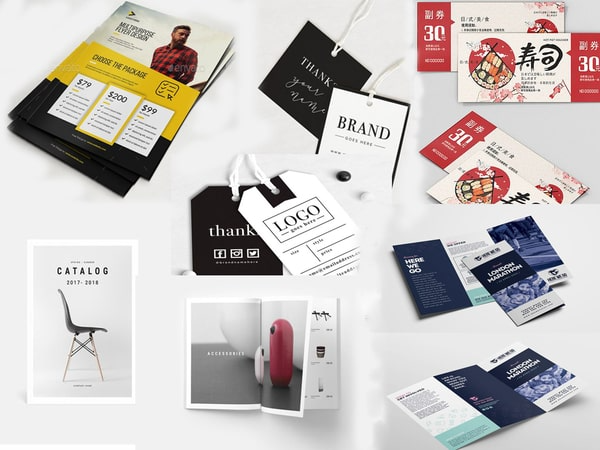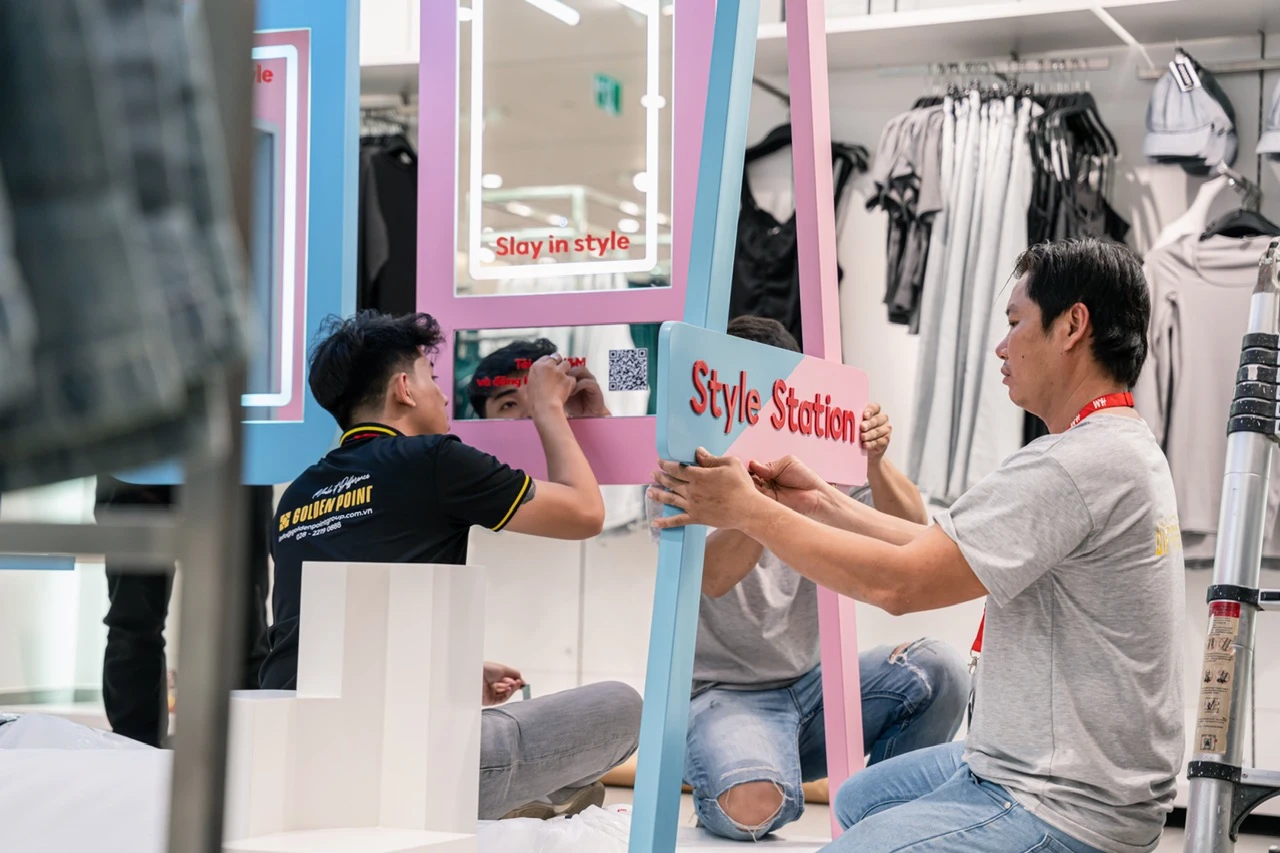
Event organization is one of the popular and highly competitive industries in the job market that attracts the interest of many young individuals. It is also a crucial aspect of the advertising, communication, and entertainment services industry. Event organization has the potential for strong development and further growth in the future. However, many people still feel uncertain when exploring this industry. To understand the detailed characteristics of event organization, let’s read the article below from CareerViet…_
The question of “What is event organization or event?” is a common curiosity for many people. In reality, this industry receives a lot of attention in today’s job market. With the strong development of communication nowadays, this profession asserts its importance and standing in society. Here are the roles and purposes of event organization in our lives:
Event organization is an activity carried out to serve PR and marketing purposes. This helps increase customers and enhance the brand’s reputation. Sometimes, event organization aims at sales, celebrations, meetings, or year-end galas. Events are often created to attract attention from the community and the target audience the event wants to reach.
This activity serves as an essential tool in promoting a company’s products, brand, and services. A successful event can have positive impacts on communication. Conversely, if it fails, it can decrease the brand recognition in the market.
The purpose of event organization is to achieve results and values that businesses or organizations desire immediately afterward. The purposes of event organization activities include:
Conveying messages that businesses want to communicate to the target audience, supporting the development of communication campaigns, and effectively developing the brand’s image.
A successfully organized event helps enhance the value and perception of the brand by the public.
Maximizing communication effects both externally and within the event with the aim of touching the emotions of participants and customers.
An event is considered successful when it is organized according to a strict, detailed, and specific process. Here is the basic process of event organization that businesses need to understand to successfully organize events for their company, providing value to the brand in the market.
Before starting an event, event organizers need to gather information from potential customers to gather opinions and advice on suitable items for the event. Specific steps include:
Goals and desires of the unit wanting to organize the event.
Factors needed to determine the success of the event.
Detailed planning of ideas for organizing the event.
Transportation, installation of equipment, sound systems, and lighting needed for the event.
Implementing marketing campaigns and promotional activities for the upcoming event.
Planning for contingency plans if any issues arise.
The stage of running the event typically includes the following steps:
Careful installation and ensuring the safety of necessary sound, lighting, and decorations. It is essential to ensure that these systems work well during the event.
Final check of all items in the event before starting the program.
Organizing the team to welcome guests attending the event opening.
Managing and closely monitoring the event’s progress and ensuring that the event runs according to the pre-planned schedule.
Checking items, lighting systems, and sound before running the event.
After organizing the event, businesses should pay attention to activities such as:
Promoting communication activities to promote brand awareness during the event.
Building good relationships and connections with service providers supporting the event.
Caring for and paying attention to customers to provide the best services for them. They will have a good impression of the business and turn to it when they have needs.
Solving post-event issues that may arise, such as budgetary issues.
Finding suitable solutions to address unexpected issues or shortcomings to gain experience.
Various issues may arise during the event execution process. Therefore, after the event concludes, businesses need to review and address lingering issues through the following activities:
Budgetary issues related to event organization.
Finding suitable solutions to rectify unforeseen incidents and shortcomings to gain experience.
Most of the current activities on the market, such as sports and entertainment, commerce, and social work campaigns, require the assistance of event organization to conduct exhibitions, press conferences, workshops, and more. Event organization is becoming a well-developed professional field in many countries and is taught in detail with a system of professional theories and knowledge. Activities related to and requiring event organization include:
Trade fairs and exhibitions.
Workshops, conferences, and discussions.
Concerts, festivals, and music performances.
Fundraising events or entertainment purposes.
Cultural events, sports events, or events of the Party and State.
Product launches, introductions, and promotions.
Events related to the image of businesses, commercial promotions, or marketing programs.
People often wonder what event organizers study or what skills professional event organizers need. In reality, event organizers, in addition to studying specialized knowledge in fields such as marketing, event management, event directing, also need to be creative and sharp. Furthermore, organizational skills, teamwork, flexibility, and maintaining a standard attitude are essential to successfully carry out event organization tasks. In addition, professional event organizers need to have the ability to withstand pressure, a strong mindset, and a professional attitude during their operations to achieve the most successful event organization.
Currently, the workforce in the event organization industry is highly sought after in the job market. Companies and businesses are not hesitant to invest heavily to find talented event organizers to serve the purpose of promoting their brand. Therefore, the salary in this industry is at the top and may experience strong growth based on the effectiveness of the work. Specifically, an event organizer may receive an average salary of 9,000,000 VND per month. This figure can increase depending on the working capacity and the number of projects received in a month. To learn more details and meticulous information about the salary in this industry, you can visit VietnamSalary to update the latest information and statistics.
In addition to a strong professional knowledge base, event organization staff also need to continuously improve and develop the following skills to serve their work and meet the needs of businesses on the market:
To organize an event with hundreds or thousands of participants, event organizers cannot act alone but need the support of a team or colleagues. Therefore, to become a professional event organizer, you need to master teamwork skills and know how to cooperate with team members to ensure smooth work.
During the work process, event organizers will have the opportunity to meet and interact with various potential partners. Therefore, having good and professional communication skills will help you find more collaboration projects. Moreover, this skill helps in dividing work, coordinating personnel reasonably, and ensuring the success of the event.
Many people mistakenly think that event organization is a hands-on job, without using the “brain.” In reality, to make an event run in an organized and impressive manner, event organizers need to plan and build a script in advance. Without a script, the event is likely to run chaotically and encounter many difficult-to-solve problems. Therefore, in addition to professional knowledge, you also need to learn scriptwriting skills to become a professional event organizer.
These are core factors that a professional event organizer must possess. They are responsible for all aspects of the event, including venue selection, decoration planning, stage design, program scripting, organizing artistic performances, and developing communication ideas for the event. Consequently, appropriate creativity helps the event stand out, create a strong impression, and attract participants.
Although this is a “hot hit” industry in the market, not everyone can become a professional event organizer. Those who are suitable for this job need to have the following qualities:
Dynamic and Creative Individuals: The job of an event organizer involves planning, executing, and supervising various events, so dynamic individuals will have enough energy to handle these activities in the best possible state. Additionally, creativity allows you to generate unique and novel ideas, producing positive effects and leaving a lasting impression on clients.
Organizational Skills: To ensure the smooth execution of events, there are numerous tasks to handle. Therefore, you need organizational skills to arrange tasks logically, avoiding time wastage that could affect your work schedule.
Perfectionists: Individuals with this quality are well-suited for the role of an event organizer. Your meticulous attention to detail and carefulness will ensure that everything is done in the best possible way.
Good Health: Good health ensures that you have the positive energy required for your work. Event organization involves meeting partners, suppliers, and clients. Therefore, good health is a factor for you to successfully complete tasks and engage in this profession for the long term.
Creative and dynamic individuals are suitable for becoming event organizers (Source: Internet)
These are the key points related to the event management industry. Hopefully, after reading, you will gain valuable knowledge related to this “hot hit” profession, allowing you to plan for your dream job in the future

In simple terms, the Golden Ratio is a mathematical ratio. It is abundantly present in nature, and when applied in design, it represents aesthetics, embodying the natural balance of creation. But have you ever wondered what the Golden Ratio truly is and how to use it to enhance your designs?

When it comes to print advertising, understanding the appropriate sizes is crucial for creating high-quality and engaging materials. This article will guide you through the considerations and benefits of adjusting print sizes to achieve satisfactory results.

In lighting design, a solid understanding of the applicable standards is the key to creating harmonious and efficient lighting spaces. With the continuous development of technology and modern design trends, mastering crucial design standards is not only necessary but also a determining factor for the impression of a space. Let’s explore and grasp these standards together to create innovative lighting spaces that touch every human emotion.

Everything in the office should be arranged, organized, and selected to achieve evenness and balance in a certain proportion. This principle is also applied to many small office design models.

In interior design, many consumers mistakenly perceive lighting design as simply selecting different types of lamps, determining wattage, choosing styles, and matching colors with the interior. However, in reality, this is an inaccurate concept.

In the field of fashion retail, a fashion store front typically has 3 mannequins, IKEA arranges items like a home, … It’s not by chance that products are placed the way you see them. Each position in the store is carefully calculated to keep customers there longer, which translates to spending more. The job demands both creativity and a business mindset, and it belongs to visual merchandisers. In this article, find out how visual merchandising works, its impact on brands and revenue.

Surely you have come into contact with printed publications such as desk calendars, flyers, standees, etc. So have you ever wondered how these publications are created or who is behind these publications?

Offset printing is a printing technique in which inked images are transferred (offset) onto rubber sheets (referred to as offset plates) before being pressed onto paper. Nowadays, offset printing technology is widely used by printing companies in Hanoi.

A beautiful piece of work, no matter how aesthetically pleasing, loses more than half of its value if not adorned with suitable colors. In printing, the criteria for color are even more critical. Therefore, the selection of printing colors always takes the most contemplative time in designs. The printing color palette is diverse and mystical. Let’s explore it through the following article.

Event organization is one of the popular and highly competitive industries in the job market that attracts the interest of many young individuals. It is also a crucial aspect of the advertising, communication, and entertainment services industry.

Before launching a new product, the first thing a business needs to do is market research to understand customer needs, current market trends, and competitors. This will help the business identify target markets and develop appropriate marketing strategies to promote its product.
